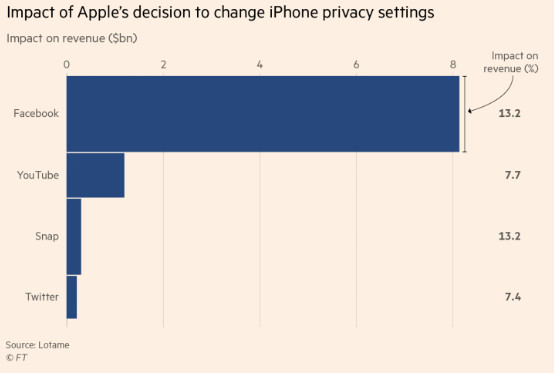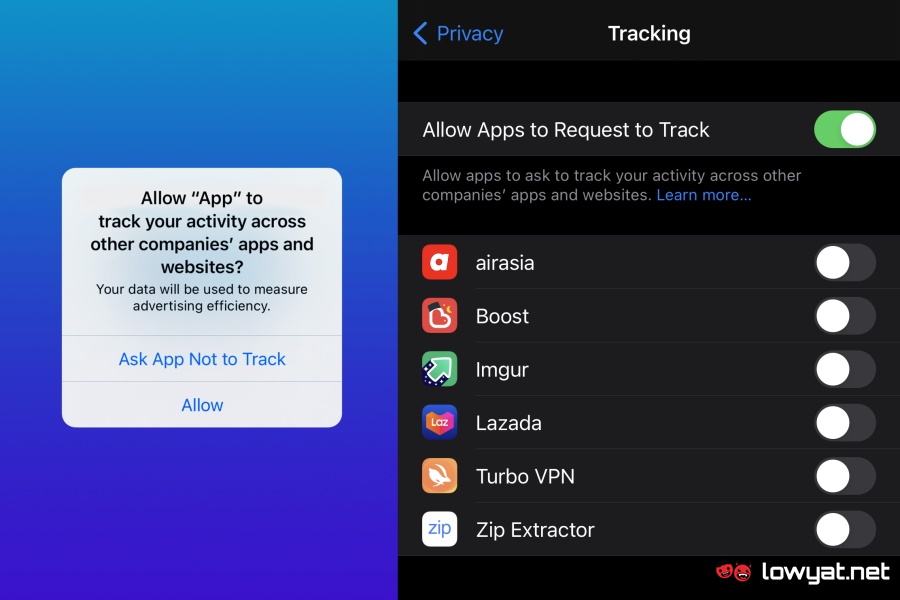ATT was introduced back in April, and is a system that forces apps to ask for users’ permission to track their data and behaviour, which is used to curate personalised ads. Flurry Analytics evaluates that as of late May, only 15% of worldwide iPhone users have opted-in to allow their data to be tracked by apps, with the number being 6% for US users.
Advertising technology company Lotame estimates that the four platforms lost a collective 12% of their revenue in the third and fourth quarters. Both Facebook and Snap topped the losses, percentage-wise, but in terms of sheer numbers, the former was the most impacted. Before the system even officially rolled out, Facebook made it clear that it was not happy with Apple’s decision, going so far as to take out a full-page newspaper ad to speak against it, and even putting a prompt in their app pleading users to let them track their data.
Interestingly, Apple’s in-house advertising business, Search Ads, tripled its iPhone ads market share in the six months since introducing ATT. Search Ads offers sponsored slots in the App Store, which might, for example, highlight the TikTok app when users search for “Snapchat”. While it’s good that Apple is committing to a higher degree of user privacy, this is only a small step as advertisers are finding ways to get around the policy. Some popular apps reportedly gather user data by fingerprinting devices, which collects specific data points about your iPhone, although Apple says that this is also not allowed. (Sources: Financial Times [1][2], 9to5Mac)

